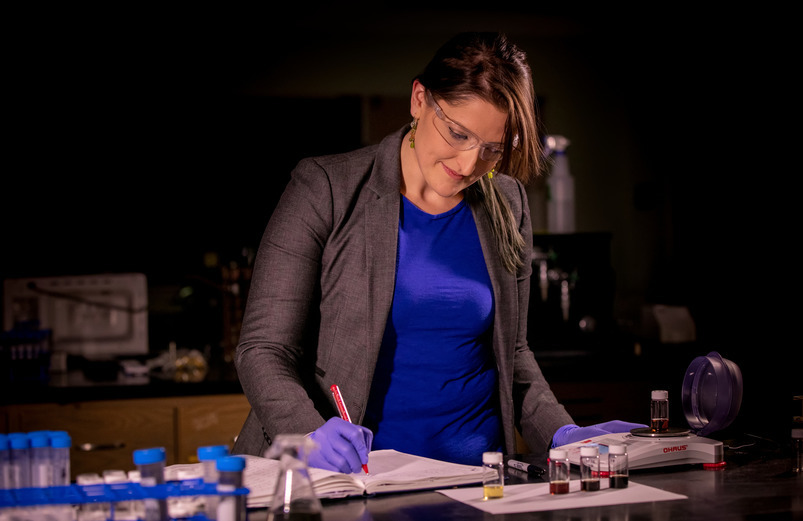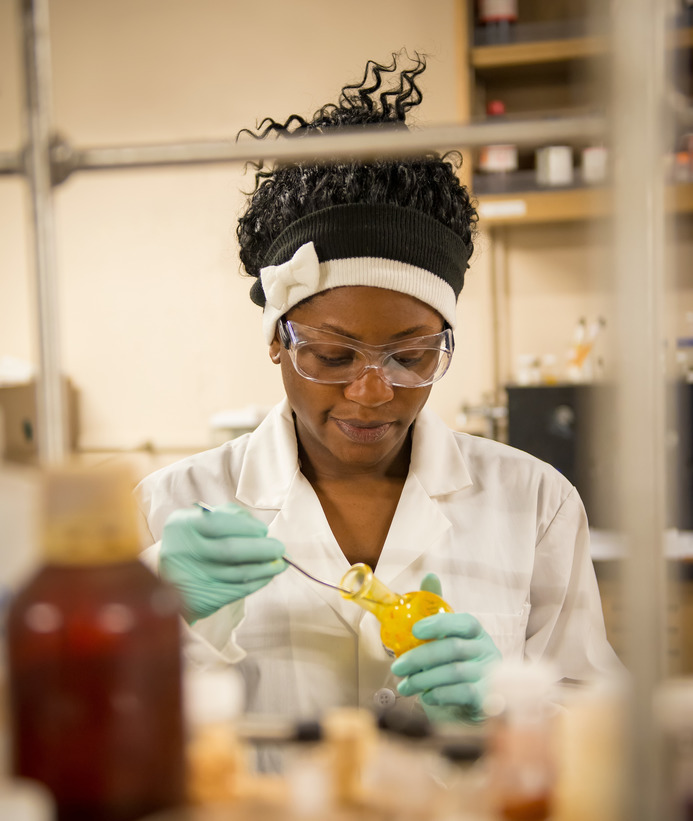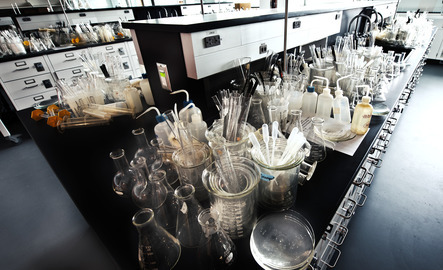What is Chemistry?
In our chemistry program, you’ll analyze molecular and solid-state materials using specialized instruments for coursework or research. Some facilities include X-Ray Diffraction and Mass Spectrometry. Our programs offer a range of intensity. The bachelor of science program is the most in-depth while the bachelor of arts program serve different purposes for those who may need knowledge of chemical substances.
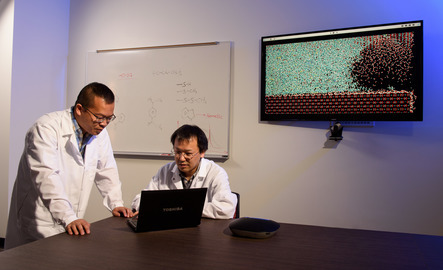
Expertise among faculty in the Department of Chemistry enriches students’ development at UW.
We have a history of successful faculty. Professor Sarah Jane Rhoads, who taught from
1948 to 1984, was among the first women in the United States to become a full professor.
She was also the first professor at UW to obtain a grant from the National Science
Foundation.
Dr. Brian Leonard serves as Department Head and studies inorganic materials chemistry.
He is currently researching materials for fuel cell applications with the aim of creating
cost-effective, durable catalysts that exhibit higher activity in fuel cell reactions
than current options.
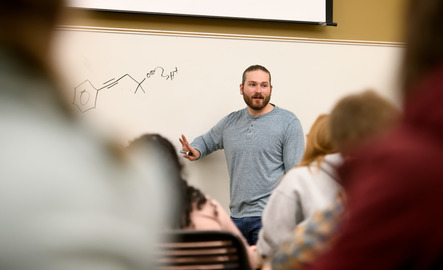
Chemistry Minor
The chemistry minor is a great way for undergraduate students in other majors to enhance their education with a deeper understanding of fundamental chemical principles. If this is something you're interested in, consider tacking on a chemistry minor to your primary degree!
Learn MoreWhat can you do with a chemistry bachelor's degree?
A chemistry bachelor’s degree offers a wide range of opportunities—from careers in pharmaceuticals, forensics and environmental science to roles in biotech and chemical engineering. It’s also an excellent foundation for medical, dental or graduate school. There are endless career opportunities in the chemical sciences, which is why UW offers multiple programs in this field.
- Postsecondary Teacher
- Physician
- Physical Scientist
- Chemist
- Materials Scientist
- Pharmacologist
- Forensic Scientist
- Environmental Scientist
- Chemical Technician
- Quality Control Analyst
- Research Associate
- Laboratory Manager
- Regulatory Affairs Specialist
- Science Writer or Technical Communicator
- Patent Examiner or Intellectual Property Assistant
- Product Development Scientist
- Process Development Chemist
- Toxicologist
- Massachusetts Institute of Technology
- Cornell University
- University of Washington
- Texas A&M University
- Yale University
The main difference between a B.A. and a B.S. in chemistry is focus. A B.S. offers more intensive science and math training, ideal for research or graduate study. A B.A. provides flexibility with more electives, great for combining chemistry with other fields or career paths. Talking with your advisor about your interests and goals is a great way to determine the best path for you.
Absolutely! If students wish to pursue a master’s or Ph.D. in chemistry or a related field, the coursework and lab experience provide a strong foundation. It's also excellent preparation for medical, dental or pharmacy school.
Fast-track Chemistry M.S. Program
The fast-track chemistry master's is designed to allow qualified students to be admitted to the M.S. program during their junior or senior year of the B.S. program, and to work towards both the B.S. and M.S. degrees in chemistry. This B.S./M.S. program allows for early planning of the graduate portion of the student's education by taking graduate courses as part of the B.S. degree.
